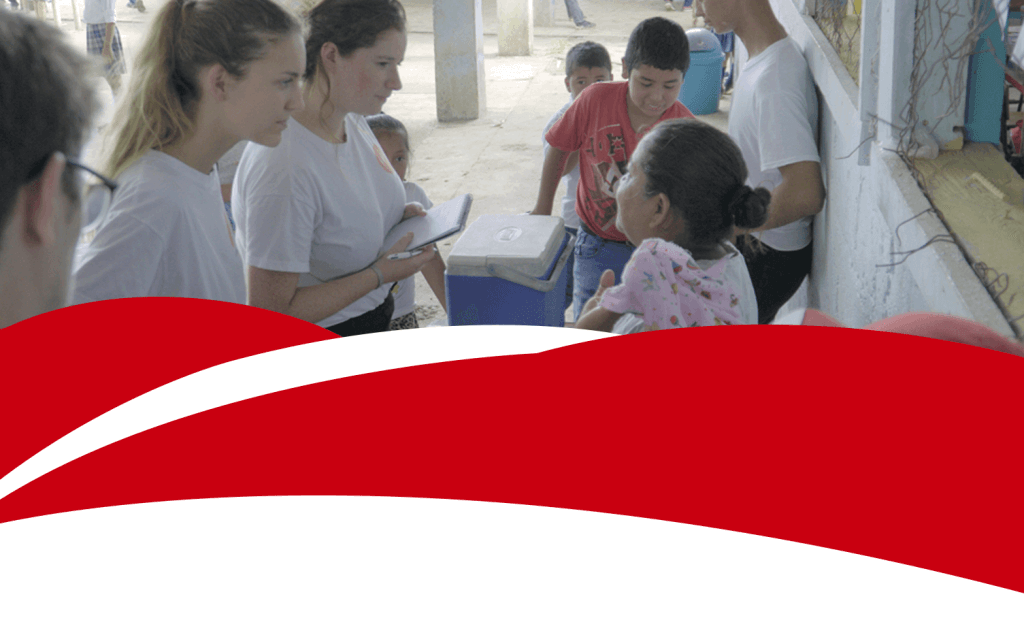
Our Story
SHARE started working in 1987 with the implementation of projects for community support in response to the needs contemplated from a self-management and shared participation perspective.
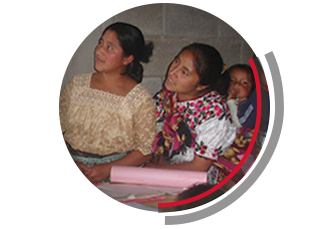
From 1987 to 1994
During its early days, SHARE developed projects for rural infrastructure, nutrition and family diets, preservation of natural resources and small loans for women; at first, this was done in the vicinity of the department of Guatemala, and later, throughout the country with the support from USAID, World SHARE and the World Bank.
From 1995 to 2000
SHARE implemented the Integrated Rural Development Program, which was sponsored by USAID and supported by the Government of Guatemala, mainly in the departments affected by the internal armed conflict in the Peace Zone. The program aimed to strengthen the capacity of families to work methodically, generate economic income in a sustainable manner, and improve their abilities to invest in the improvement of nutrition and health of children and mothers, thus enhancing the life quality of the entire family.
SHARE also supported the efforts of families that were affected by natural disasters such as Hurricane Mitch in the department of El Progreso.
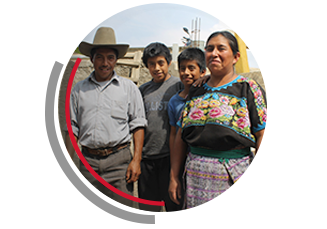
From 2000 to 2006
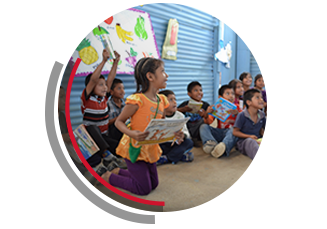
With the vision of contributing to sustainable development, through financial solutions, inspiring people to achieve their dreams, SHARE started its Business Development Program in 2002. A program that continues to be implemented with great success to this day.
Likewise, SHARE developed a new stage of the Rural Development Program which included the following components: improvement of family health and nutrition, improvement in the generation of family income, and the strengthening of local energy with the support of USAID and local organizations.
It also established an education support program with the aid of USDA, which reached out to more than 1,400 boys and girls and more than 1,000 schools throughout the west and north of the country.
Due to the success of the previous programs, SHARE developed the Food Security Program – SAM (in Spanish), which included the following components: nutrition and health and production and infrastructure. This was all possible with the support of USAID throughout 5 departments of our country. At the same time, with the support of USDA, it made the education support program accessible to all for 12 consecutive years, improving the education system. Some of these improvements were even included in policies that belonged to the annual plan of the MINEDUC (Ministry of Education) and the CNB (national basic curriculum).
SHARE also developed a project for the strengthening of municipal capacities for risk management with the support of OFDA, in Tecpán, Chimaltenango.
It also developed an emergency project to support families affected by drought in the departments of Jutiapa, Huehuetenango and Chimaltenango and provided support to victims of storm Agatha in the Chimaltenango area.
From 2006 to 2011
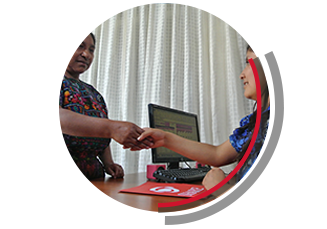
From 2011 to 2014
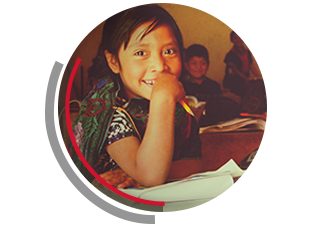
In 2014, the Education Support Program concluded with the support of USDA and local organizations, being recognized nationally for its successful trajectory with the participation of 947 primary schools in 9 departments of the country, with the same number of strengthened school councils. , improving the nutrition and education of more than 132,167 children and supporting 5,580 teachers with didactic materials that are currently used, strengthening of teaching capacities, as well as 36 projects to improve school water systems, 41 projects to improve school kitchens, 40 reading corners in rural schools in the country.
SHARE also developed a project for the strengthening of municipal capacities for risk management with the support of OFDA, in Tecpán, Chimaltenango. It also developed an emergency project to support families affected by drought in the departments of Jutiapa, Huehuetenango and Chimaltenango and provided support to victims of storm Agatha in the Chimaltenango area.
As of December 31, 2014, more than 18,728 rural entrepreneurs were granted Créditos que Transforman Vidas (Credits that Change Lives) (which rose to around $14 million).
Up until now, SHARE has managed to achieve interesting results in areas such as access to credit, basic services like education, and needs like integral food safety for rural families, whom have been traditionally excluded from these basic components of human development in Guatemala.
SHARE has kept a learning culture within the organization by promoting high-impact social investment, which is reflected in positive assessments on the effects achieved with its target population.
The strengthening of local municipal capacities for risk management continued through the initiative of the project for the strengthening of municipal and community capacities for risk management and gender inclusion carried out from 2014 to 2018 with the support of USAID, OFDA and SE-CONRED, and it directly benefitted vulnerable populations in disadvantaged social contexts in the departments of Quetzaltenango, Retalhuleu, San Marcos, Escuintla, Sacatepéquez, Chimaltenango, Guatemala and Zacapa.
SHARE In Guatemala led the development of an innovation laboratory that aimed to reduce maize post-harvest losses, which was sponsored by USAID's Feed the Future and led by the Kansas State University. The same reinforced innovative thinking and allowed the development of different strategies for capacity growth for more than 300 small farmers and their families, as well as the development of manuals for trainers with a gender approach, the adaptation of relevant technologies and the implementation of different strategies for the dissemination of information with a gender approach.
For more information, visit this website: https://www.k-state.edu/phl/
SHARE reached more than 34,000 comprehensive microfinance clients as of December 31, 2019, through a microfinance plus* model focused on the reduction of social inequality gaps of rural financial exclusion and the lack of access to education through sustainable scholarships for both boys and girls and working on significant efforts to reduce poverty by supporting more than 18,000 people who live below the poverty threshold each year.
During 2018, SHARE created a cooperative savings association, which initiated in 2019 with a pilot carried out in the municipalities of Palencia and Antigua Guatemala. Then, the COVID 19 pandemic affected the world during the years of 2020 and 2021.
SHARE adjusted its plan so that its clients and associates could deal with the effects of the pandemic. A navigation plan was published based on the most catastrophic scenarios, and it included actions to protect associates and clients, as well as staff and members of the different government bodies, and the collaboration with the communities where SHARE is present.
The navigation plan was carried out successfully, and it achieved its objectives. SHARE. Came out stronger with more clients and a growing and healthy portfolio.
Nowadays, the number of clients and associates exceeds 35,000 and has a percentage of women participation greater than 60%, a percentage of rural portfolio greater than 80%, and a percentage of agricultural financing of 40%. The total portfolio exceeds Q368 million and a risk capital greater than 30 days at 1.17% as of November 2022.
Currently, SHARE continues to grow and has made significant achievements in the areas of access to credit, basic services such as education, and needs such as comprehensive food security for rural families, who in Guatemala had traditionally been excluded from these basic components of human development.
SHARE is currently in a process of transformation, aiming to create a group of institutions and initiatives that will promote social businesses that present a positive impact in the improvement of life quality for vulnerable people.
SHARE has kept a learning culture within the organization by promoting high-impact social investment and a responsible social and environmental impact.
*For more information on this model, go to this website: https://wiconnect.iadb.org/osc/share-guatemala/
From 2014 to 2019
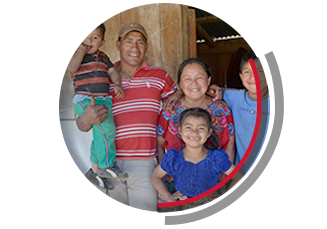
Other
PROJECTS
SHARE carries out different activities within projects and programs. Their aim is to support its strategic vision by promoting sustainability and development using its own methodologies, systems for monitoring and evaluation, and high-performance personnel in each intervention.
Research and
INNOVATION
In Guatemala, SHARE leads the development of an innovation laboratory that aimed to reduce maize post-harvest losses, which was sponsored by USAID's Feed the Future and led by the Kansas State University. The same was leveraged in innovative thinking and allowed the development of different strategies for capacity growth for more than 300 small farmers and their families, as well as the development of manuals for trainers with a gender approach, the adaptation of relevant technologies and the implementation of different strategies for the dissemination of information with a gender approach to local and national actors, accompanied by technical training for students from different local universities (USAC, CUNOROC), government agricultural agents (MAGA, VIDER) resulting in more than 1,000 participants. More information on the DISASTER risk
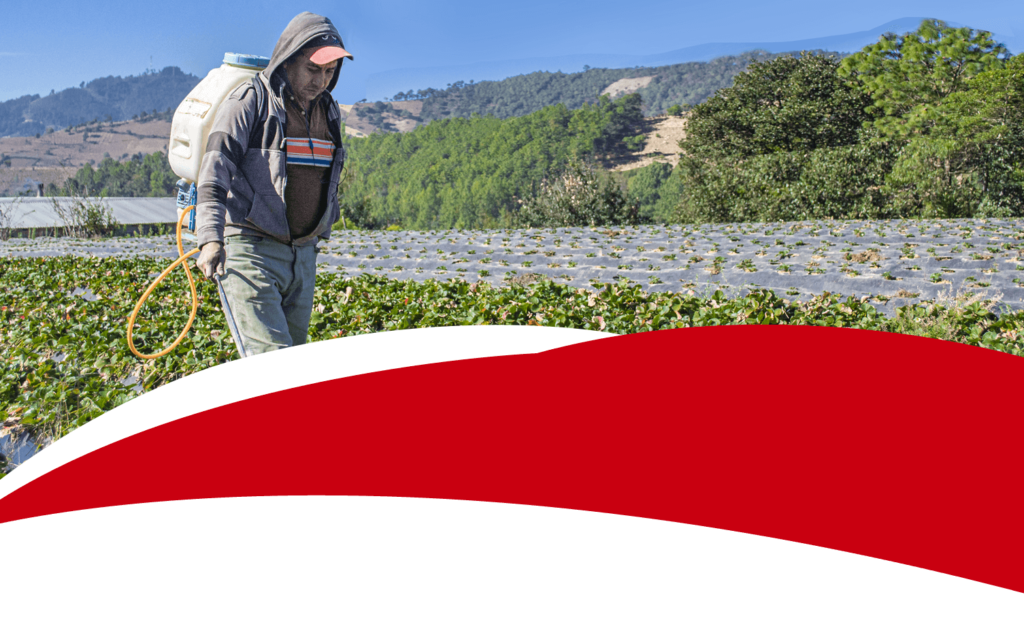
DISASTER
prevention
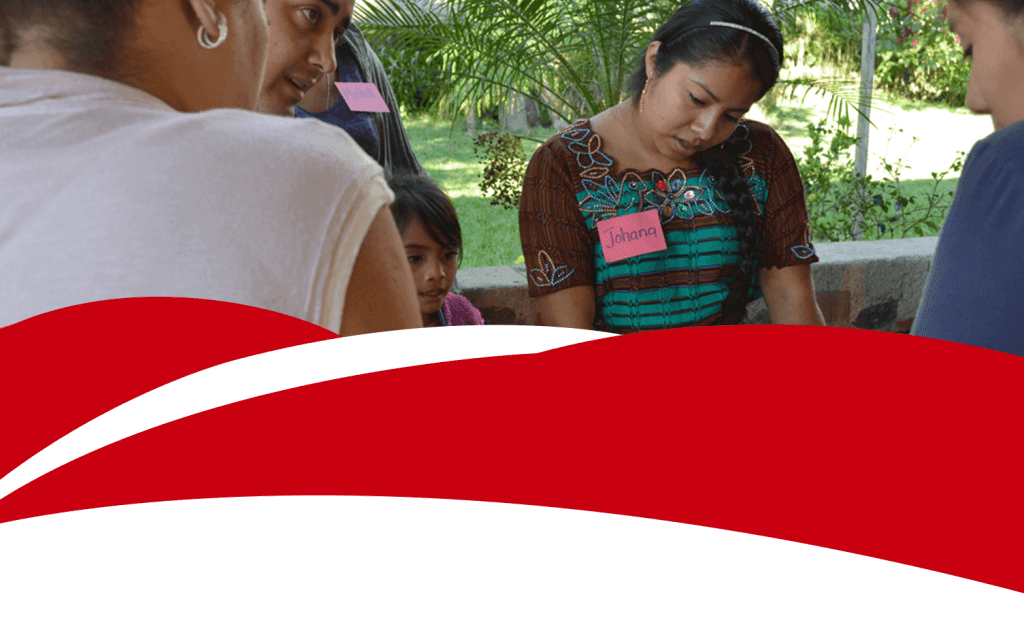
It was achieved through the strengthening of local municipal capacities for risk management and the project for the strengthening of municipal and community capacities for risk management and gender inclusion carried out from 2014 to 2018 with the support of USAID OFDA and SE-CONRED, and it directly benefitted vulnerable populations in disadvantaged social contexts in the departments of Quetzaltenango, Retalhuleu, San Marcos, Escuintla, Sacatepéquez, Chimaltenango, Guatemala, and Zacapa.
Rural
TOURISM
